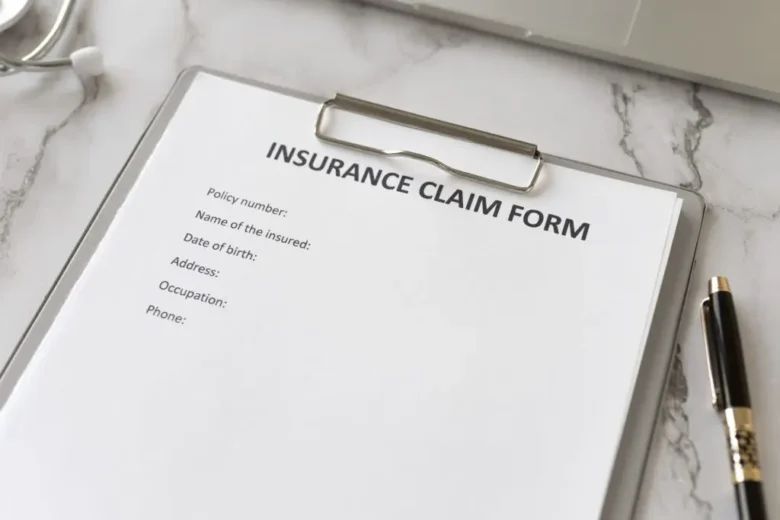When the unexpected happens, having insurance can provide a much-needed safety net. However, navigating the process of filing an insurance claim can feel overwhelming, especially if it’s your first time. This guide will walk you through the key steps to help you file a successful claim and maximize the benefits of your coverage. From understanding your policy to working with an insurance adjuster, we’ll cover everything you need to know.
Understanding Your Insurance Policy
Before you file an insurance claim, it’s essential to have a clear understanding of your policy. Your insurance policy is essentially a contract between you and your insurance provider and outlines your coverage details, benefits, and limitations. Review your policy documents thoroughly to confirm whether the incident or damage in question is covered. Pay close attention to key terms such as coverage limits, deductibles, and exclusions. Being informed about your policy helps set realistic expectations and ensures there are no surprises during the claim process.
Documenting the Incident
Proper documentation is the foundation of any successful insurance claim. Start by gathering all the necessary details about the incident, including the date, time, and cause of the event. If possible, take photographs or videos of the damage or loss as soon as it happens. For example, if you’re filing an auto insurance claim, capture photos of the damage to your vehicle, any other vehicles involved, and the surrounding scene. If there were witnesses, collect their contact information as well. This documentation will serve as critical evidence to support your case.
Notifying Your Insurance Company
Once you’ve documented the incident, the next step is to notify your insurance provider. Most policies specify a time frame within which you need to report the incident, so doing this promptly is crucial. Contact your insurer through their customer service line or claims department and provide them with essential details, such as your policy number and a brief description of what occurred. Some insurers also offer online claim portals or mobile apps for quick reporting. Early notification not only expedites the claims process but also demonstrates diligence on your part.
Completing the Claim Form
After notifying your insurer, they will generally provide you with a claim form to complete. This document captures all the details about the incident and the compensation you’re seeking. When filling out the form, be as accurate and thorough as possible. Include all relevant dates, locations, and other pertinent information the insurer may need. Any inaccuracies or missing details could cause delays or complications in your claim. If you’re unsure about any section of the form, reach out to your insurer for clarification.
Providing Evidence and Supporting Documents
Supporting documents are a vital component of your insurance claim. Along with the completed claim form, you’ll be required to submit evidence such as receipts, invoices, police reports, medical reports, or repair estimates, depending on the type of claim. For example, if you’re filing a home insurance claim due to water damage, providing a repair estimate from a contractor may strengthen your case. Ensuring that all your documents are organized, complete, and submitted on time will speed up the process and improve the chances of a positive outcome.
Working with the Insurance Adjuster
After you’ve submitted the necessary documents, the insurance company may assign an insurance adjuster to your case. The adjuster’s role is to investigate the claim, assess the damage, and evaluate how much the insurer is liable to pay. Be prepared to cooperate fully with the adjuster by providing access to the damaged property or answering their questions honestly. If possible, attend the inspection to provide context and ensure all damages are thoroughly assessed. A good working relationship with the adjuster can make the entire claims process smoother.
Understanding the Settlement Offer
Once the insurance adjuster has completed their assessment, the insurer will send you a settlement offer. This offer outlines the amount they are willing to compensate based on the damages and your policy’s coverage terms. Take time to carefully review the offer and ensure it aligns with the extent of your damage or loss. If you believe the settlement doesn’t adequately cover your expenses, you have the right to negotiate with your insurer. Documented evidence, such as repair estimates or market value reports, can provide leverage during negotiations.
Appealing a Denied Claim
Unfortunately, not all claims are approved. If your claim is denied, don’t lose hope—you have the right to dispute the decision. Request a written explanation from your insurer explaining why the claim was denied. Review this explanation alongside your policy to identify whether the denial is valid. If you still believe the claim should have been approved, gather additional evidence, resubmit the documentation, and formally appeal the decision. You can also seek assistance from a public adjuster or legal professional to strengthen your appeal.
Next Steps to Take After Filing
Filing an insurance claim doesn’t end with acceptance or denial. Once the claim is settled, take time to review the process and evaluate your insurance coverage. Consider whether your current policy meets your needs or if you’d benefit from making adjustments for better protection in the future. Additionally, maintain detailed records of the claim for future reference, especially if you’re renewing your policy with the same provider.
FAQs
1. How long does the insurance claims process take?
The length of time can vary depending on the complexity of the claim and the efficiency of your insurer. Simple claims may be processed within days, while more complex cases might take weeks or months.
2. What happens if I miss the deadline to report a claim?
Filing outside the specified time frame could result in your claim being denied. Always report incidents to your insurer as soon as possible to avoid complications.
3. Can I file a claim for minor damage?
While you can file a claim for minor damage, consider whether the compensation outweighs the impact on your claims history. Frequent claims can lead to higher premiums.
4. Do I need a lawyer for my insurance claim?
Most claims don’t require legal assistance, but if your claim is denied or you’re having difficulty negotiating a fair settlement, consulting a lawyer may be helpful.
5. Will filing an insurance claim increase my premium?
Depending on the type of claim and your policy, your premium could increase after filing. Speak to your insurer to understand how it may affect your rates.




